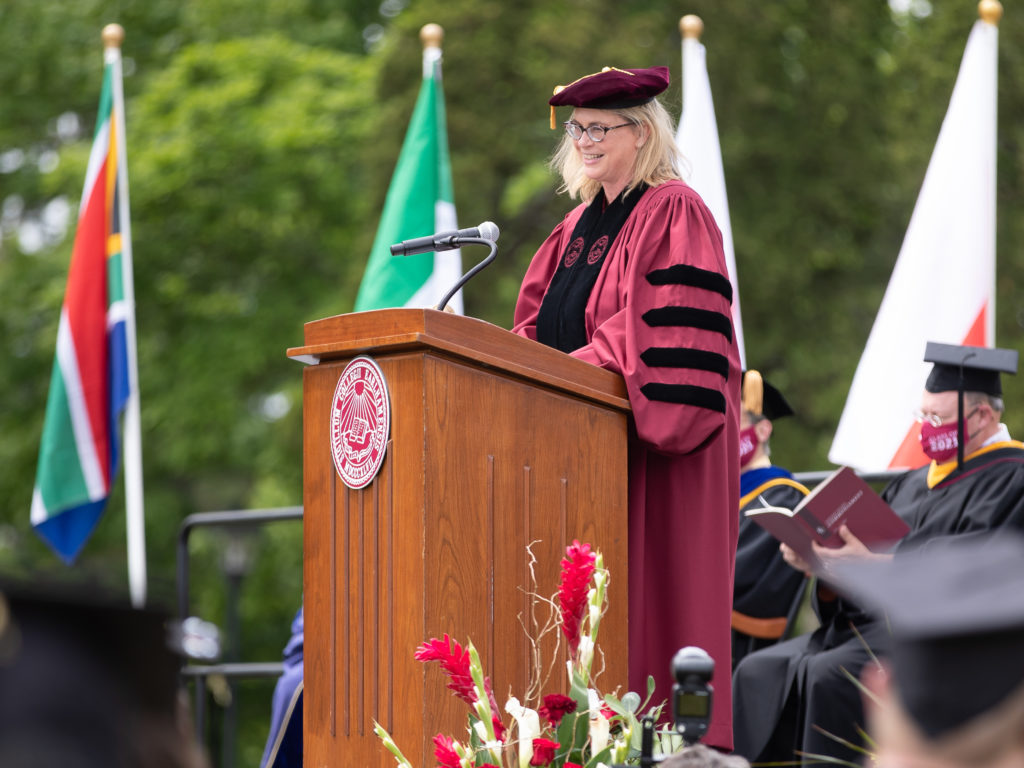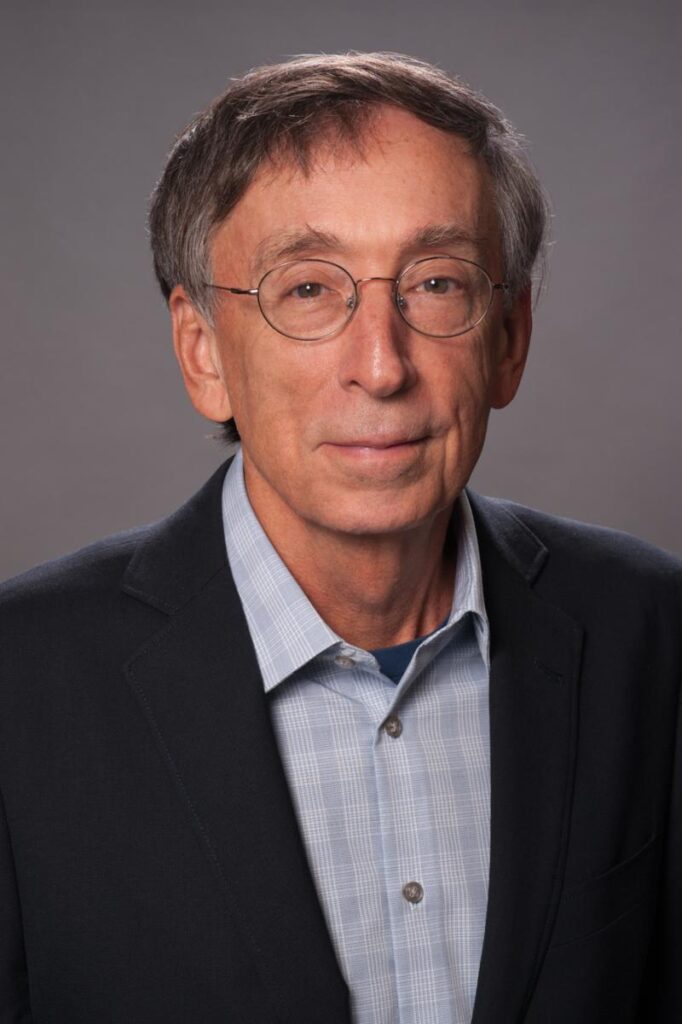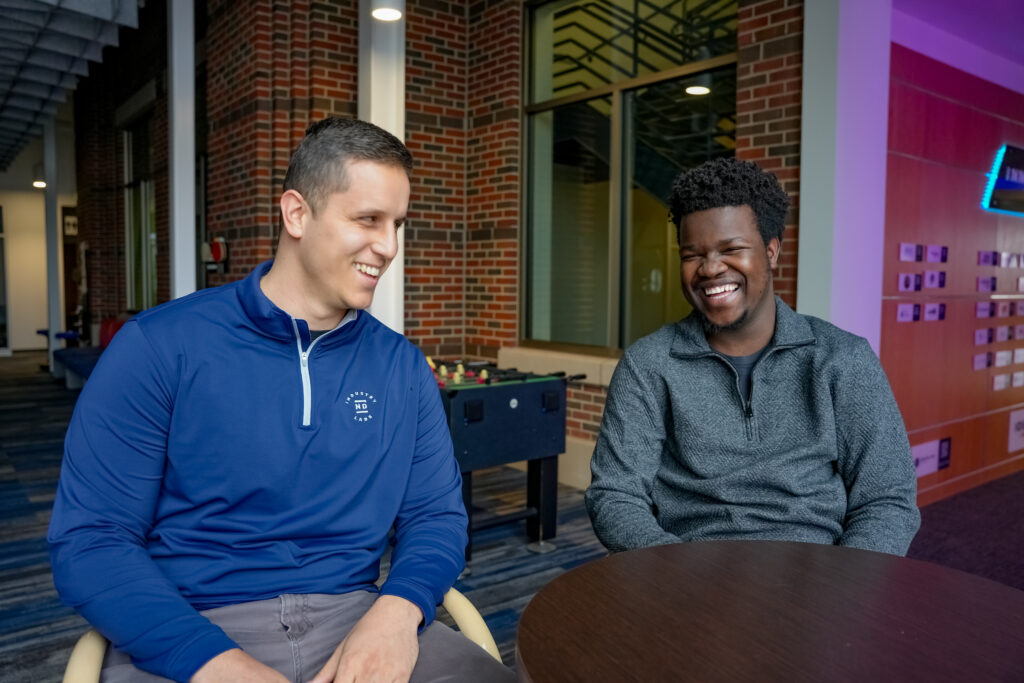Community is something we are always working on at Earlham. At its simplest, we ask everyone to treat each other with care and consideration. One parent has described Earlham’s approach this way:
[At Earlham] leave anything you’ve learned from Twitter behind you. Twitter teaches you to clap back, score rhetorical points, assume someone’s worst motives or block those who think differently. Earlham is a place where you do the opposite; you find a way to be open to others, to be charitable about other’s motives.

This past year, I was reminded of the strengths of this approach through a bond I forged with leaders of five other Indiana colleges. We meet every Tuesday night via Zoom. Five of the six colleges were founded by historic peace churches – Quaker, Brethren and Mennonite — and those founding values continue to inform our work. But aside from our professional roles, we are an otherwise unlikely group, representing a spectrum of social and political values. In the narrative of a polarized America, this should make us a powder keg waiting to explode.
Except we haven’t. And it has made us better at what we do, particularly as we navigate a pandemic that has entered its second year and continues to complicate our plans.
As our differences arise—and they do—we are reminded of our institutions’ shared values of peace, non-violence and respect for persons. When non-violent dialogue and peace are shared values, then you can talk openly about difficult subjects. And we have.
This is also the sort of community we aim for at Earlham for our students. This goal is reflected in our work this past year to revise our Principles and Practices and to develop a Diversity, Equity and Inclusion Action Plan (read more here). Simply put, we are striving for a more equitable environment as we also call for peaceful dialogue and non-violent language.
This is not an easy path nor a short one, but it is true to Earlham.
It means looking thoughtfully and critically at how we are hiring faculty and recruiting students. It means asking tough questions about how we live out our principles on campus.
At the same time, it means strengthening a community that builds understanding and works toward the truth.
It means an openness to being wrong. It means grace for others in addition to ourselves—forgiveness when our instinct is to repudiate, compassion when we may want to condemn or even hate. It means a commitment to making our community better for all, and doing so in a principled way.
Like what you’ve read? Share this article with your network.





